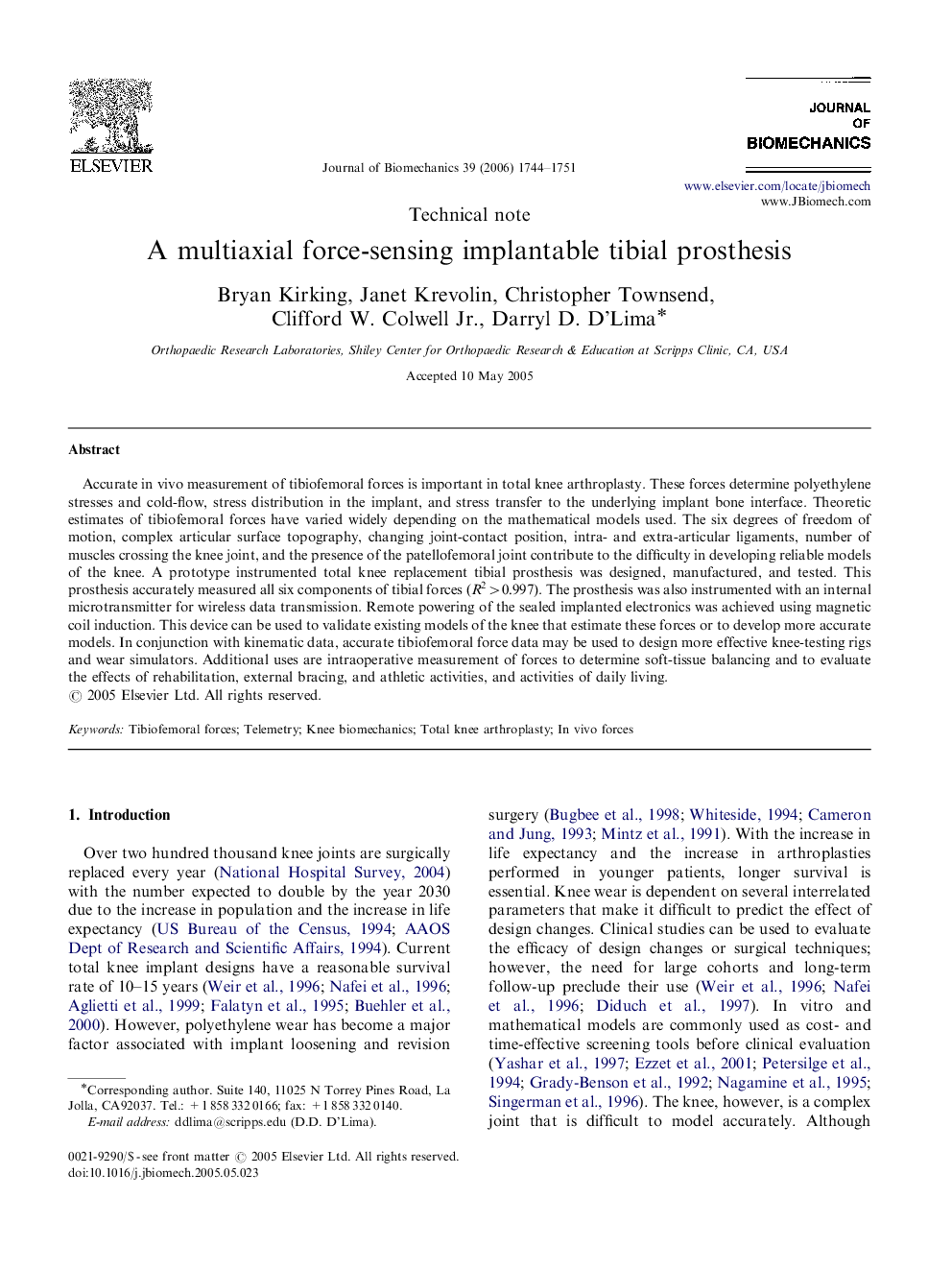| Article ID | Journal | Published Year | Pages | File Type |
|---|---|---|---|---|
| 874939 | Journal of Biomechanics | 2006 | 8 Pages |
Accurate in vivo measurement of tibiofemoral forces is important in total knee arthroplasty. These forces determine polyethylene stresses and cold-flow, stress distribution in the implant, and stress transfer to the underlying implant bone interface. Theoretic estimates of tibiofemoral forces have varied widely depending on the mathematical models used. The six degrees of freedom of motion, complex articular surface topography, changing joint-contact position, intra- and extra-articular ligaments, number of muscles crossing the knee joint, and the presence of the patellofemoral joint contribute to the difficulty in developing reliable models of the knee. A prototype instrumented total knee replacement tibial prosthesis was designed, manufactured, and tested. This prosthesis accurately measured all six components of tibial forces (R2>0.997)(R2>0.997). The prosthesis was also instrumented with an internal microtransmitter for wireless data transmission. Remote powering of the sealed implanted electronics was achieved using magnetic coil induction. This device can be used to validate existing models of the knee that estimate these forces or to develop more accurate models. In conjunction with kinematic data, accurate tibiofemoral force data may be used to design more effective knee-testing rigs and wear simulators. Additional uses are intraoperative measurement of forces to determine soft-tissue balancing and to evaluate the effects of rehabilitation, external bracing, and athletic activities, and activities of daily living.
